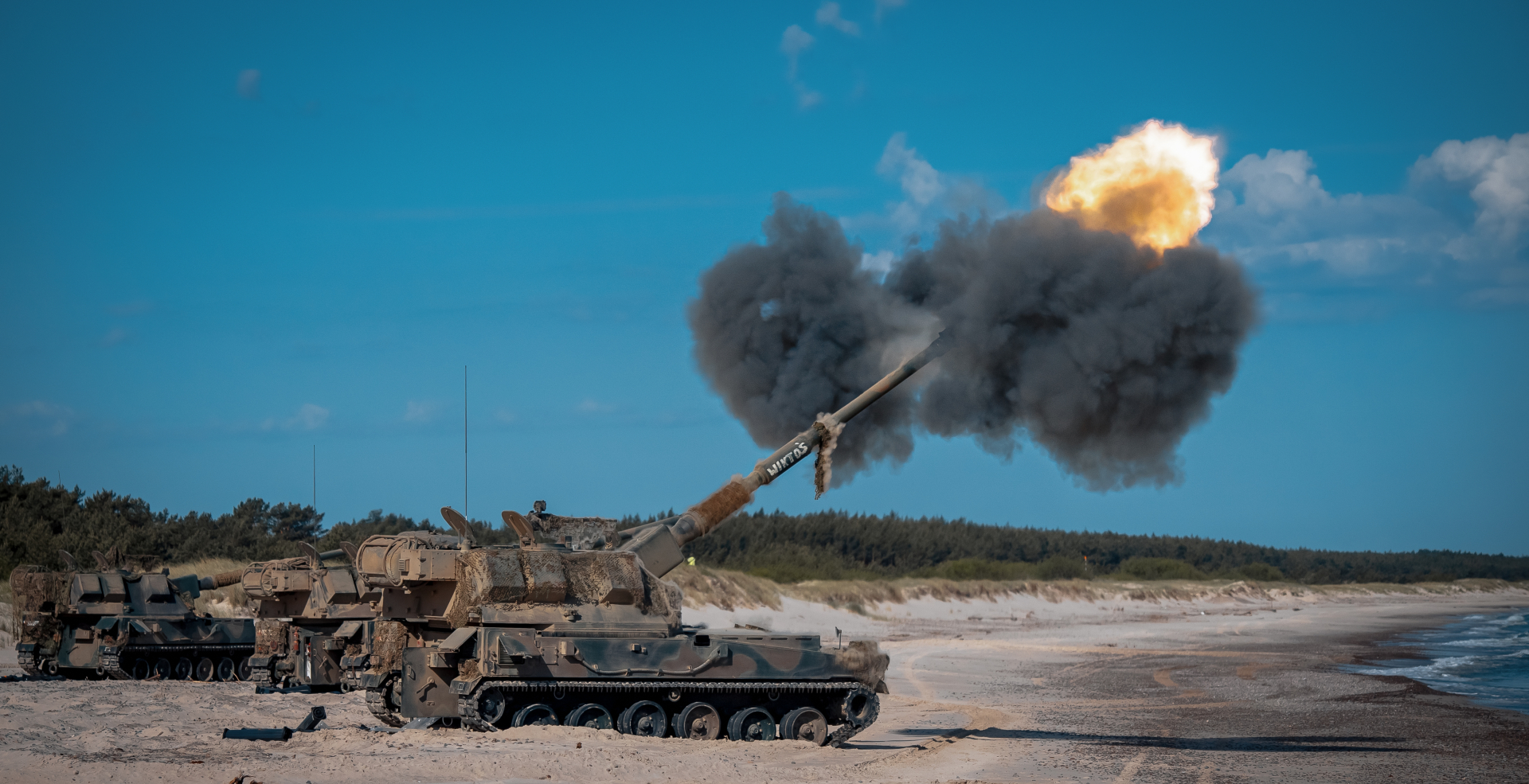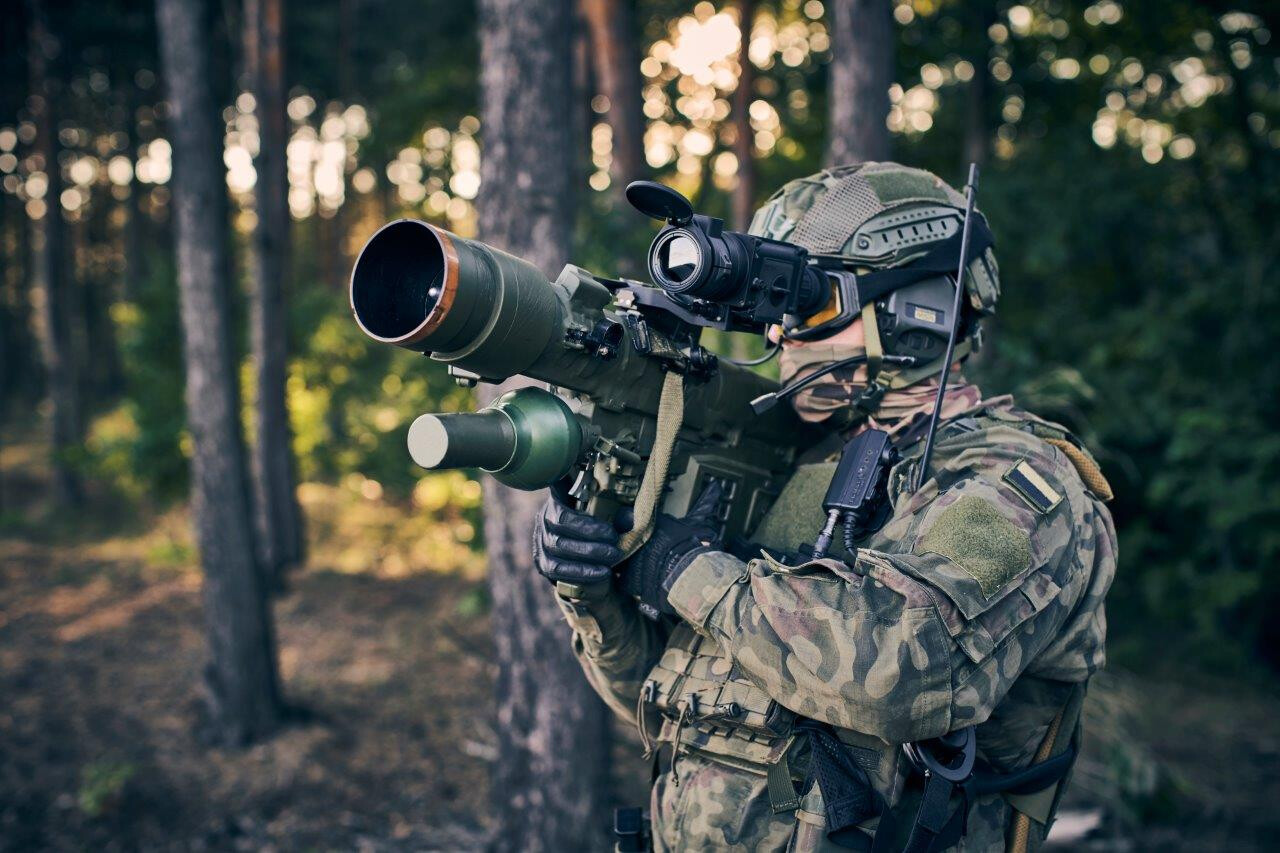The Armaments Agency is reaching out for EU grants. In the background, ammunition for artillery

- EU funds will be allocated to five programmes for joint purchases of arms and ammunition by EU countries, including one with the participation of Poland.
- The grants are relatively small (EUR 60 million each), but are intended to help finance the most urgent purchases before the target EU programmes come into force.
- Poland, along with five other countries, is participating in a program to purchase 155-millimeter artillery ammunition, the basic caliber in NATO.
EDIRPA stands for European defence industry reinforcement through common procurement act, a program launched in 2022, just after Russia's full-scale invasion of Ukraine. Its goal is to support joint procurement in the most urgent and critical areas of defence.
EDIRPA has a relatively small budget of €310 million and is planned for 2024-25 as a short-term solution – before longer-term ideas such as EDIP come into play.
The EDIRPA program has three priorities: ammunition, air and missile defense, and platforms (the latter being a very simplified term for armored vehicles). In May, the European Commission decided to award funds to five projects, including two ammunition projects, two air projects, and one platform project. Each project received a grant of the same amount – 60 million euros. However, it is not known what this share of the total expenditure will be. The estimated value of each project was included in EU documents, but in publicly available versions this data was blacked out.
Poland, and specifically the Armament Agency subordinate to the Ministry of National Defense, is a participant in one of the ammunition projects . It provides for the joint purchase of various types of artillery ammunition of caliber 155 millimeters, the basic one in NATO. The coordinator of this project is the Ministry of Defense of the Netherlands, and apart from Poland, it is also participated in by the defense ministries or equivalent Armament Agencies of Italy, Lithuania, Denmark and Croatia.
Grant agreement signedOn Tuesday (10 June), Deputy Minister of Defence Paweł Bejda (PSL), responsible for the technical modernisation of the army, and the Armament Agency announced the signing of an agreement on grants. - The head of the Armament Agency, Brig. Gen. Dr. Artur Kuptel, signed a grant agreement on the Polish side, thanks to which we will receive funds from the EDIRPA programme for the joint purchase of ammunition - the Armament Agency reported on social media.
- This is the result of our activities with European partners to build common security. This is our first, but not the last step towards EU defense projects - the Agency added in a statement.
In turn, Deputy Minister Bejda wrote that "millions of euros will flow into the accounts of six countries, including Poland". - Today we signed a grant agreement on the allocation of money in the EDIRPA program. Additional financing will support technical modernization - our goal is a strong Polish Army - he emphasized.
Who else will receive EU grants?The second ammunition project that received a grant under the EDIRPA program also concerns the 155 mm caliber, although this time it is for high-explosive shells . Here, the coordinator is Germany, and the other participants are Estonia and two countries that also participate in the project, including Poland – Denmark and the Netherlands.
In the priority concerning platforms, the EU will contribute to one program for the purchase of 6x6 armoured vehicles . Here, the coordinator is Finland, and the participants are Latvia, Sweden and Germany.
In the air defense sector, grants were awarded for two projects. The first concerns the purchase of Mistral systems with very short-range missiles. This purchase is coordinated by France, the manufacturer of Mistrals, and also involves Belgium, Cyprus, Estonia, Spain, Hungary, Slovenia, Romania and Denmark.

The second project within the same priority concerns the purchase of German IRIS-T missiles . Here, the coordinator is of course Germany, and the participants are Slovenia, Bulgaria, Austria, Estonia and Latvia.
In 2024, Poland tried to ensure that EDIRPA grants also covered the joint purchase program of Piorun portable anti-aircraft missile systems, manufactured by MESKO from Skarżysko-Kamienna, a PGZ subsidiary. It failed, and the purchase of Pioruns is currently on the reserve list of the EU program .

Three years after the first decisions resulting in EDIRPA, in March 2025 the European Commission presented a White Paper on European Defence called ReArm Europe / Readiness 2030.
The Commission has allowed member states to exempt defence spending of 1.5% of GDP from EU fiscal sustainability limits for a four-year period (2025-29). This is expected to mobilise around €650 billion .
Another €150 billion is to come from EU borrowing on capital markets under the SAFE instrument. These funds are to be paid out to member states based on their national plans. Another source of financing is to come from loans from the European Investment Bank.
The plan was a response to the need to support Ukraine in the short term, and in the long term – a plan to improve the security and defence of the Union. Among the proposals proposed by the Commission were the promotion of cooperation between countries in procurement, simplification of regulations on the defence market, facilitation of the transfer of troops between countries, stockpiling and strengthening the protection of external borders, especially with Russia and Belarus.
wnp.pl





